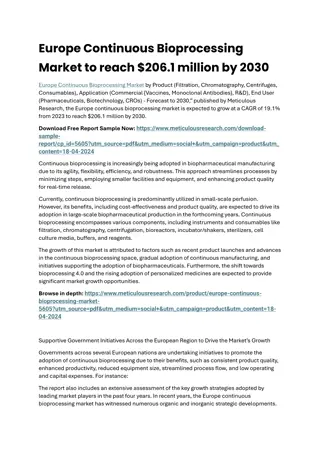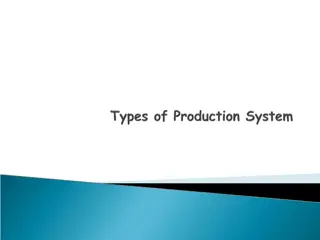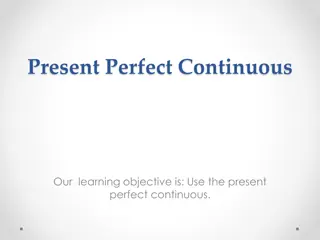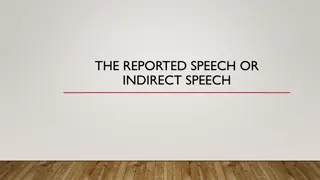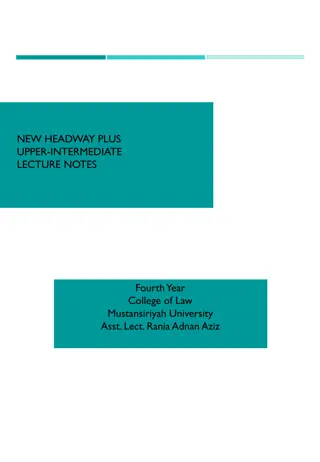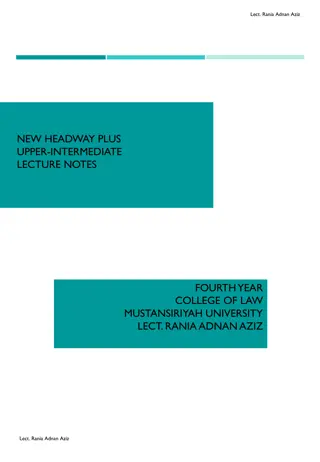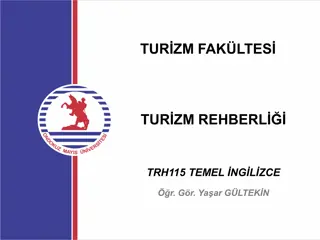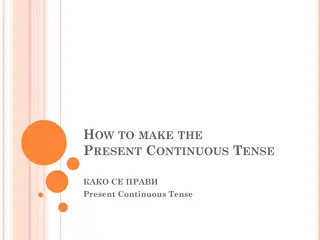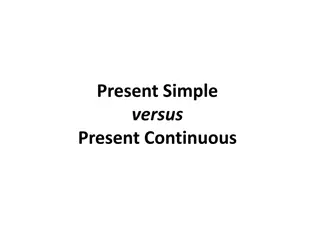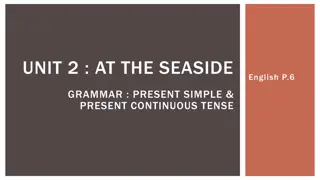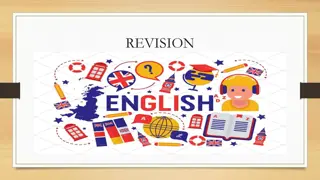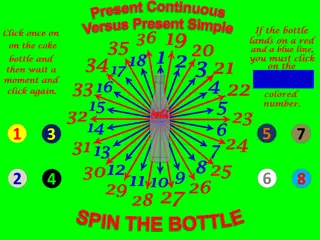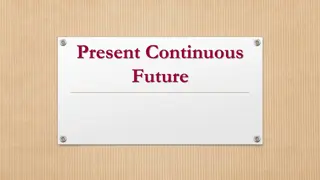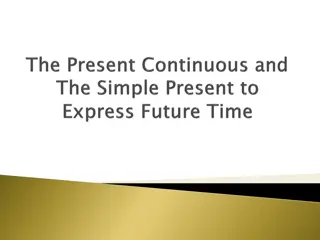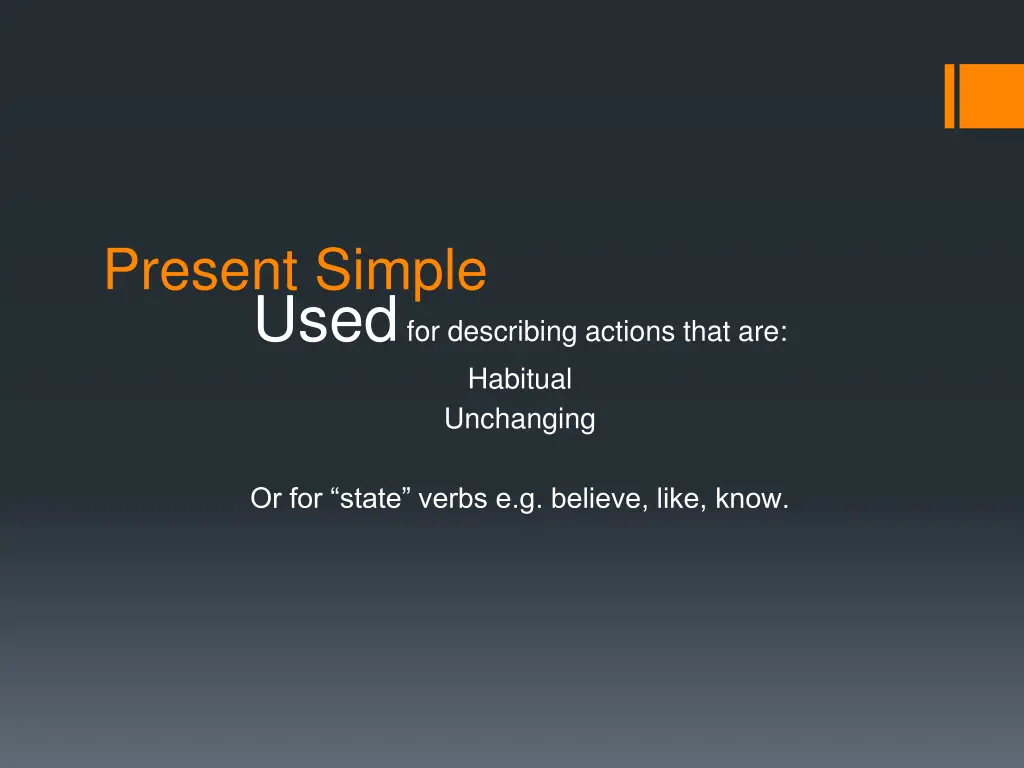
Describing Actions and State Verbs in Present Simple
Explore the usage of Present Simple for describing habitual actions, unchanging situations, and state verbs like believe, like, know. Understand how to create questions, use adverbs of frequency, position them correctly in sentences, and apply them with the verbs be and have got. Learn about possession with 'have got' and 'have' in the English language.
Download Presentation

Please find below an Image/Link to download the presentation.
The content on the website is provided AS IS for your information and personal use only. It may not be sold, licensed, or shared on other websites without obtaining consent from the author. If you encounter any issues during the download, it is possible that the publisher has removed the file from their server.
You are allowed to download the files provided on this website for personal or commercial use, subject to the condition that they are used lawfully. All files are the property of their respective owners.
The content on the website is provided AS IS for your information and personal use only. It may not be sold, licensed, or shared on other websites without obtaining consent from the author.
E N D
Presentation Transcript
Present Simple Used for describing actions that are: Habitual Unchanging Or for state verbs e.g. believe, like, know.
Do\ever\you\get\ worried You\are\a\confident \person You\do\make\easily\friends Makes\happy\what\you Who\you\phone\do\when\you\worried\are
In your life\influence\who\the\ biggest\is Test\you\a\ever\have\personality\taken Worry\about\do\what\you\the\most Influenced\you\at\school\most\who\the Best\advice\gives\you\who\the
The Present Simple I go running three times a week. I smoke twenty cigarettes a day. The sun rises in the East and sets in the West. My sister lives in Leeds. We know what s best for you. They agree to our conditions.
Adverbs of frequency 100% 0% always usually often\frequently sometimes occasionally hardly ever never\ever
Position of adverbs of frequency Before the main verb,e.g. I never go jogging Do you ever watch Blob on TV? I always wake up early.
With the verbs be and have got Adverbs of frequency go after the verb be : I m always late for lessons. Are you ever unhappy? It s never cold in Summer. and after have but before got : We ve always got enough to eat. Have you always got enough time to cook lunch?
Have got\ have = possesion Have you got any brothers and sisters? Has he got a dog? She has got a cold. We ve got a lovely house in the countryside. Do you have any brothers and sisters? Does he have a dog? She has a cold. We have a lovely house in the countryside.
Idiomatic uses of have Free time activities To have a party To have a good time To have a rest To have a nice day\evening To have a holiday To have a break To have a swim
Have: food and drink To have breakfast\lunch\dinner To have a meal\sandwich\ pizza To have a drink\ a coffee \ a tea
Other activities To have a shower \ a bath To have a sauna\ a massage To have a lesson To have an accident To have a good trip\ journey \ flight
The Present Simple, interrogative form Where does she live? What time does the train to London leave? How often do you go to the cinema? Do you agree with me? Do they know the way ? What do you do?
How to form the interrogative Do + subject + verb in the infinitive Do I\ you\ we\they need to buy a book? Does + he\she\it + verb in the infinitive Does Anne live near the university? Does the vending machine work?
Interrogative form Where do you usually have lunch? Dove pranzi di solito? I have lunch at home. Pranzo a casa . N.B. Have lunch\ etc... Are action verbs so they can take the continuous form. I m having a shower at the moment.
The Present Simple, negative form I don t know what he means. You never buy things on the net. He doesn t go running in the evening. The film doesn t start till eight. We don t eat meat. They don t agree about anything.
The Present Progressive Used to describe actions that are: Temporary In progress Happening now or around now Used to describe the scene or an image. With always it means an action happens too often or is an irritating habit.
The Present Progressive I am working in France for three months. Look! The bus is coming! They re repairing the roads near the university. The sun is shining and the birds are singing. He s always asking me to lend him some money. My car is always breaking down.
The Present Progressive interrogative form What are you doing? Why is he going out? Is it raining? Why is he always doing that? What are they reading?
The Present Continuous Negative form I m not enjoying this party. You re not going, are you? He isn t studying enough for his exams. They aren t staying in a B and B. The people aren t sitting down. We aren t wearing jackets and ties.
Stative verbs Not used in the progressive form: Dislike,hate, like, love, prefer, want, wish Believe, doubt, feel (have an opinion), know, mean, realize, recognize, remember, think (have an opinion), understand Hear, see, taste, smell, sound, appear, seem * (see next slide) Depend on, fit, involve, matter, need, owe, own, possess, cost
Both stative and dynamic Verbs like think, see, feel, smell, taste, Can be both stative verbs ( no progressive form) and dynamic verbs: E.g. This sauce tastes delicious! And I m tasting the sauce I think it needs more salt Those flowers smell sweet. I m smelling this milk because I think it s off
Whats he doing? Wake up describing the image He s waking up slowly, he s scratching his head and thinking about what he wants to do.
What time does he usually wake up? Describing a routine action He wakes up late on Sundays, he likes to take it easy and has a long breakfast.
Student life Go out with friends Go clubbing Have a good time Get home Have a hangover

